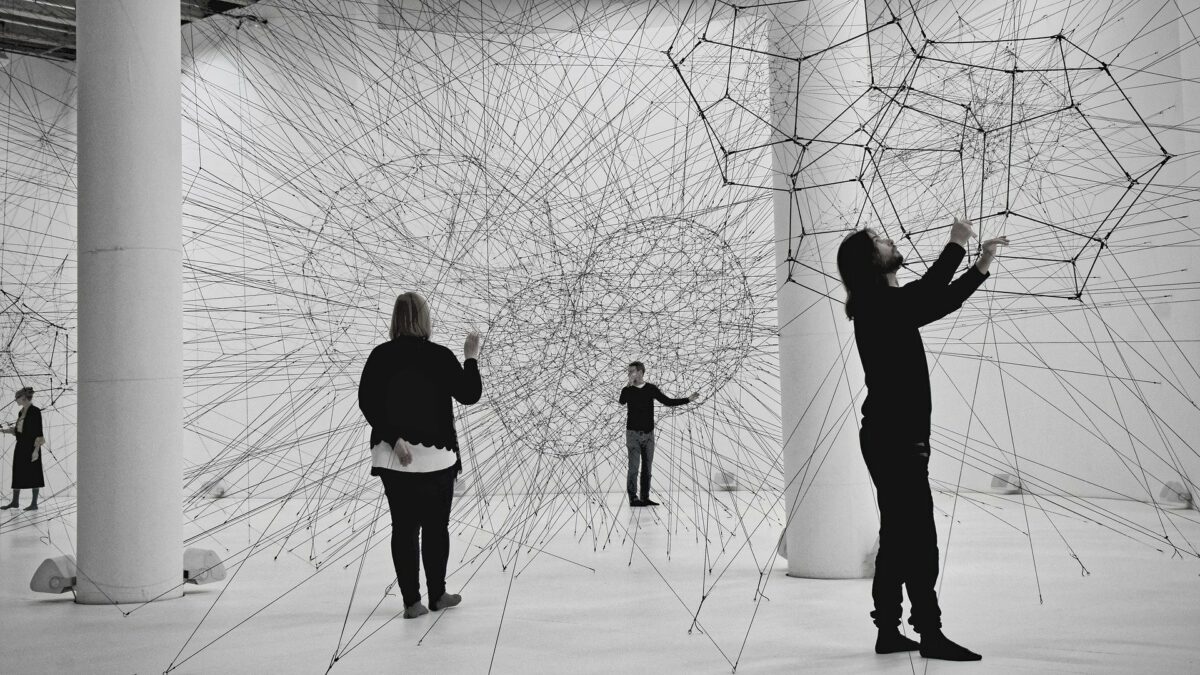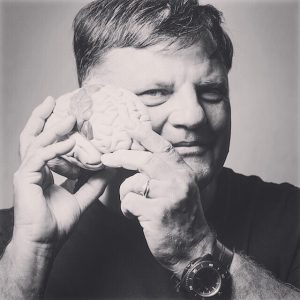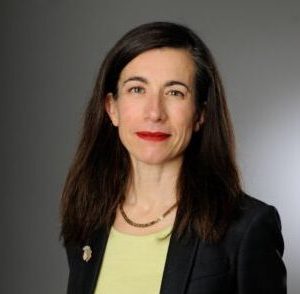The Therapeutic Museum

Art therapy and cultural prescriptions
A report from the WHO dated the 11th November 2019 identifies 900 scientific articles that prove the involvement of all forms of art in health, whether concerned with the prevention or treatment of illnesses. It highlights a quotation from Braque, “Art is a wound that becomes a source of light”.
So what are the neurobiological and psychological mechanisms at the source of this alchemical process? Why do some wounds not heal and how can art, acting as support for resilience, help to transform them?
Just like the flint tools shaped by our ancestors to be both useful and aesthetically pleasing, our brain also has two functions: one is devoted to Apollo and guides us to stay alive, and the other is dedicated to Dionysus, giving our life meaning. When faced with an artwork, our brain behaves as if it is communicating with a living being that can sculpt and touch it. When transformed, it can then begin the healing process through the miracle of empathy in aesthetic experience. What if we were all in fact works of art, the results of our interactions with the world around us? Let us seize the opportunity to admire this beauty and appreciate the cathartic effects it has on us!
Pierre Lemarquis, neurologist
Laure Mayoud, clinical-psychologist
“Museotherapy”, a tool for public health
“Museotherapy” is a brand-new concept for support treatments, brought up for discussion at this conference. It is added to other forms of art therapy that are already well-known such as musicotherapy, dance/movement therapy and drama therapy. This concept considers the museum, galleries and collections as a place for treatment and wellness, according to a holistic therapeutic approach that is supported by neuroscience and medicine.
Innovative partnerships and pilot projects have been created in partnership with health professionals, and professionals from the medical, hospital, associative, university and of course museum worlds. International organisations such as the ICOM, OECD and WHO have recently validated this approach, supported by applied research in geriatrics, food disorders, mental health, cognitive disorders, medical museum prescriptions, among other initiatives still to discover.
Nathalie Bondil, Director of the Museum and Exhibitions at IMA, Institut du Monde Arabe.
Speakers

Neurologist, member of the Société de Neurophysiologie Clinique de Langue Française (SNCLF) and the New York Academy of Sciences, teaching fellow at the Université de Toulon for the Ethnology degree managed by Boris Cyrulnik.
Additional diplomas in neuropsychopharmacology, phenomenological psychopathology, Chinese medicine, sexology, and diving medicine.
Former organist and chorister at the Croix de Lorraine, Vice-President of the Orchestre de Chambre des Harmonies d’Orphée, co-founder of the Festival Musica Classica (Upper-Corsica), President of the association “L’Invitation à la Beauté”.
Author of “Sérénade pour un cerveau musicien”, “Portrait du cerveau en artiste”, “L’empathie esthétique, entre Mozart et Michel-Ange” published by Odile Jacob and “l’art qui guérit” published by Hazan.
Media appearances (articles, radio, TV) at Artcurial, at the Maeght Foundation.
Speaker at the kindergarten meetings in March 2018 for Jean-Michel Blanquer on the topic of the importance of music in schools.

Clinical psychologist and professor
For several years now, she has been providing innovative treatment by proposing cultural prescriptions to the University’s students studying in the field of health and patients in hospitals. Thanks to the therapeutic effects experienced by patients and healthcare teams, she founded the “L’invitation à la beauté” association, with a scientific and artistic committee working on the benefits of contemplating beauty. The French national commission of UNESCO champions the progress made in the basic and applied research carried out by the association.
She organises research conferences with members of the association, and study days at the Universities who are also working on this new treatment practice. After the last research conference at Lyon Medical School, she worked on the conference proceedings along with Pierre Lemarquis (President of the association), that were then published by VRIN.
She also participates regularly in awareness and experimentation days based on her new approach to treatment, mainly organised with the French National Education’s “Mission Innovation Expérimentation”.
She is invited to create experimentation and analysis projects with the students from the most prestigious schools (HEC Paris), on the treatment effects of cultural prescriptions in specific places.
She also teaches psychology, ethics and treatment through empathy in aesthetic experience at the various schools of the Université de Lyon (medicine, Ecole Nationale Supérieure d’Architecture, Engineering school, Law school etc.).
She participates in teaching practices with associations, to improve treatment in an even broader capacity.
She is involved in the ethical committees of various hospitals.
She is a member of the scientific committee at the Centre National d’Art Vocal de Spirito (Ministry of Culture in the Auvergne-Rhône-Alpes region).

Director of the Museum and Exhibitions at IMA, Institut du Monde Arabe.
She is renowned for her work in strengthening the therapeutic, social and educational role of museums, through exhibitions and partnerships. She is behind many pilot projects on inclusion, art and health and art therapy. She promotes a new concept: “museotherapy”.
Along with the Association des Médecins Francophones du Canada and the Montréal Museum of Fine Arts, she was behind the very first museum medical prescriptions in 2018.
In 2020, she was awarded the prize for international influence by the International Council of Museums (ICOM) of Canada, as well as an innovation award from the Canadian Museums Association.
